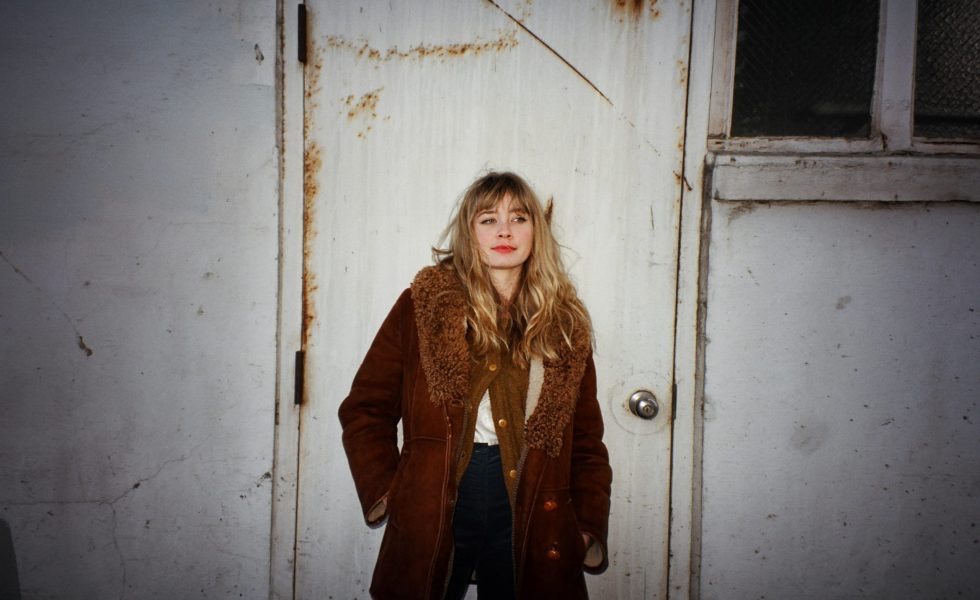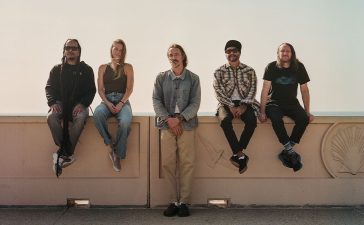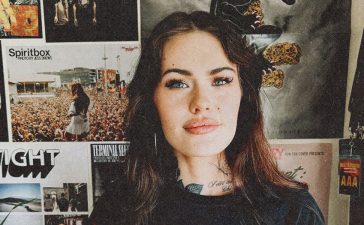To describe Alexandra Savior’s music is an almost impossible task, though the singer herself has tried and failed before.
The “feminist angst horror film feel” title that she’s given it – which has been sticky enough to define part of her Wikipedia page – is an attempt that doesn’t quite do it justice.
“I think in the first round of publicity,” Savior comments to BLUNT, “I cringe at anything that I said. I was so lost and just desperately trying to move the conversation away from Alex [Turner] all the time. I think that the horror film aspect is always going to be something that interests me and I’ll incorporate that into my music. But I do hate the fact that I said feminist angst because I feel that it’s sort of a degrading term to call feminism, or the suffering of women from inequality, to call them ‘angsty’.”
That first round that she talks about describes her press cycle for 2017’s Belladonna of Sadness, which was produced by Alex Turner and James Ford. Despite being a record that stands up on its own merit, wholly due to Savior’s delivery of each track with the soul of her personality, critics instead laboured the point of Arctic Monkeys frontman Alex Turner being involved. Apparently missing the memo that women can stand on their own two feet in this century, publications continued to paint Savior as Turner’s prodigy, the lost sheep that he discovered and steered on the right path.
“I wasn’t even really into Alex’s music”, Savior laughs. “It was very contrived, through this connection in the industry.” Her glory was Turner’s glory, but when the album didn’t do as well commercially as her label at the time, Columbia, had hoped, the failure was on her. “The basic sort of dialogue from anybody who was a part of my career in my working life, they were all telling me that I had failed and that my career was over. I was down and out at 21.”
At that point she had begun writing her second full-length, The Archer, which she ended up recording with Sam Cohen in New York after a call from friend and collaborator Danger Mouse, a connection originally brokered through Columbia, got her back in the game. It was met with critical success, though Turner only claimed to have liked a few of the songs when Savior sent it to him, marking the only other interaction in their professional relationship since the day Savior’s first album was finished. But the pain that comes through on the record, which makes it so compelling, is still something that Savior is grappling with. Dropped from her record label after Belladonna of Sadness, Savior started to realise the nature of the situations that she had been in.
“I think it’s inappropriate for record labels to be signing fucking teenagers, honestly.”
“My career started when I was 16. There were women involved in my career who really put pressure on me about the way I looked and my weight and my hair. And women can be bad as well. But some of those predatory characters, in my mind I was like, ‘They want me around. They want to be here with me because I’m so mature. They think I’m smart. They think I’m mature. They think I’m talented and they think I’m a good songwriter.’ And the reality is that’s not what they wanted. That’s not what they thought. It was because I was a cute, young, innocent, impressionable teenage girl. That’s the thing that’s the hardest to get over – having to accept that it wasn’t because you were mature and smart and special.”
Savior is mature, smart and special, but it’s no secret that darkness exists in those spaces. It’s incomprehensible that in this decade, musicians could be pushed into becoming the cookie cutter female popstars of years past that have had their identities stolen and creativity stifled. When artists like the idiosyncratic Billie Eilish are revered for their uniqueness, surely labels know that forcing artists into those molds doesn’t create enough value to outweigh the toll it takes on a human being.
Savior adds that she is “astonished” that she was allowed into some of the situations that she entered into without anyone saying anything. “If I saw me walk into some of the spaces that I was walking into at the ages that I was walking into them”, she reflects, “I would be like, ‘What is this girl doing here? She’s a baby.’ And so I find it really, really frustrating that nobody was trying to protect me. I mean, there’s a difference between being 17 and being 25 and the difference is very, very vast. And I think it’s inappropriate for record labels to be signing fucking teenagers, honestly.”
For now, Savior is re-acquainting herself with who she truly is, enjoying her interest in murder podcasts and old horror movies at home in LA, selling art on Depop and suffering, like the rest of us, with the contradictions of our pandemic. “In LA”, she observes, “people are going to bars and restaurants. But when I walk down the street, everybody’s wearing a mask.”
It’s hard to believe that Savior has been treated the way that she has, and that her talent was pushed down for so long from adults prioritising label politics. But her new album, The Archer, is a triumph above that, and while she focuses on herself at home, more and more people are starting to press play and relate to it.






